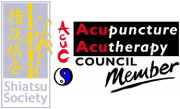"He knows exactly where the aches, pains and problems are hiding in the body; incredible!"
Cecilie
What are Muscular Imbalances ?
Muscular imbalances refer to the condition in which there is an imbalance in strength, flexibility or function between opposing muscle or muscle groups.
They are generally caused by the strain of repetitive one-sided activities, poor posture or sedentary lifestyle, stress or emotional traumas, injuries or surgery and other neuro-muscular-skeletal disorders or conditions.
Our body’s nervous system naturally adjusts to stresses and traumas, creating subconscious compensation patterns that form muscular imbalances.
These muscular imbalances are mostly hidden away, restricting our natural movements and creating second best or bad habitual movement patterns and poor postural alignment.
Without addressing our muscular imbalances, gradually and over time, our imbalances worsen, the underused weak muscles become weaker and the compensating overused or overworked muscles become tighter and stiffer.
Basically, bad habits are formed and we become stuck in our unnatural and unhealthy movement patterns.
How Muscular Imbalances affect our body?
Depending on the affected muscles and the severity and duration of the imbalance, muscular imbalances interrupt the bio-mechanics in our daily movement or sportive activity.
This impacts on our posture and gait, taking away our ease of movement and poise and affecting our physical appearance.
They are the breeding ground for our muscular aches and pain, muscle spasm and painful nerve impingement and they cause an increased risk of sports injuries or sudden injuries that appear ‘out of the blue’.
Muscular imbalances contribute to joint instability and limited range of motion, as well as one-sided overuse of our joints, leading to joint pain and dysfunction that potentially causes premature wear and tear.
Consequential strain and pain from postural deviations, such as rounded shoulders and forward head posture, are the cause and the result of muscular imbalances.
This is usually the time when patients and clients seek treatment and help.
How can I help to improve our Muscular Imbalances ?
Most rehabilitation of musculo-skeletal pain and injury are a combination of specific manual Soft Tissue Release Techniques and individualised, awareness-based strengthening and stretching exercises or postural corrections.
Too often the body is held back by chronic restriction in the soft tissue, preventing the weaker muscles from being activated and strengthened properly, thus keeping the body locked in its muscular imbalances. This makes rehabilitation slow and ineffective and allows niggling injuries to reoccur.
In my integrative treatment approach, I assess and treat the musculoskeletal conditions and their underlying muscular imbalances by using skilful hands-on soft tissue manipulations and when appropriate Acupuncture or Dry Needling.
The mobilisations process of releasing specific areas of hypertension and scar tissue and freeing up other restrictions in the soft tissue is vital to alleviate pain, promote tissue healing and restore normal movements and bio-mechanical functionality.
Nearest Tube stations
Bond Street, Oxford Street, Baker Street, Regent's Park and Great Portland Street
Appointments
Tuesday 10.00 - 19.00
Thursday 10.00 - 19.00
Call or text Daniel:
+44 07932 671 463



